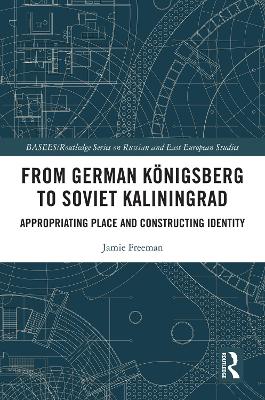BASEES/Routledge Series on Russian and East European Studies
1 total work
This book explores how the Soviet Union, after capturing and annexing the German East Prussian city of Koenigsberg in 1945 and renaming it Kaliningrad, worked to transform the city into a model of Soviet modernity. It examines how the Soviets expelled all the remaining German people, repopulated the city and region with settlers from elsewhere in the Soviet Union, destroyed the key remaining German buildings and began building a model Soviet city, a physical manifestation of the societal transformation brought about by communism. However, the book goes on to show that over time many of the model Soviet buildings were uncompleted and that the citizens, aware of their Polish and Lithuanian neighbours to both the east and the west and appreciating their place in the wider Baltic region, came to view themselves as something different from other Soviet and Russian citizens. The book concludes by assessing present developments as the people of Kaliningrad are increasingly rediscovering the city's pre-Soviet past and forging a new identity for themselves on their own terms.
